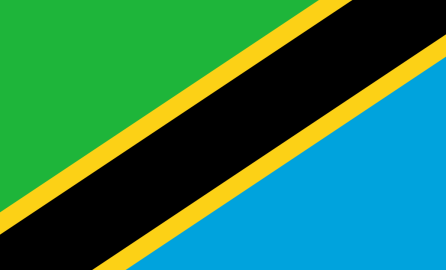Before Sarah Douik joined the recent EU Press and Information Officers Seminar in Tanzania, she contacted the capacity4dev.eu Coordination Team to borrow a small camera and receive simple video training. To give an example of what can be achieved with a small camera, we’ve edited her material into a Video Blog, which introduces participants at the seminar, and also the four European Commission-funded projects that she visited.
As an Information Correspondent for DEVCO, Sarah Douik helps to communicate on how EU development assistance brings impact and results in Sub-Saharan African. Her work is mainly Brussels based, but she regularly gets the opportunity to visit field projects and see them first hand. In September she decided to cover Delegation events in Tanzania from a capacity development perspective, and took the capacity4dev field camera with her.
The Press and Information Officer seminar held in Dar Es Salaam in September provided the rare opportunity for officers to meet regional colleagues and officials from Head Quarters. They also shared experiences and best practice, learned about practical tools to fund communications activities and how to work together as a region. Please see interviews with ten of the participants here in the EC access only group: Communication and Visibility.
Ms Douik also visited and interviewed programme managers, staff and beneficiaries at these four projects:
| Project EU reference | |
| FED/2011/239-654 | Improvement of the Competiveness of the Tanzanian Tea Sector |
| FED/2005/017-438 | Water Supply Programme Regional Centres |
| FED/149-665 | Promoting Access to Education for Deaf/Blind and Multiply Disabled Children in Tanzania |
| FED/266-815 | Introducing a New Concept for Affordable Biogas Systems |
“I really got a sense of how the EU delivers, and how €1 has a very clear impact and result on people’s lives,” she said whilst editing her video blog with the capacity4dev.eu Coordination Team, “I saw lives transformed.”
Ms Douik considers regular project visits for programme managers to be essential. “Going into the field is an investment, but I think there is a higher return on this investment. I would also recommend spending time with people and visiting fewer projects, which may look simple on paper but they are much more complex in reality. While development cooperation is about indicators, about results, about facts, it is also about the human adventure.”
“I also had the chance to see the cooperation,” she continued, “how it’s a two sided story: we invest and we have ‘return’ in the sense of human lives being transformed, in terms of new markets being opened, in terms of new opportunities for young people on another continent who recognize that they have been supported and have this chance because of EU support. It gave me a motivational boost for my day- to- day work.”
For Ms Douik, the most important outcome of her field trip was to see how the cooperation was manifesting on the ground. “I was also amazed – as usual, in fact – with the ability of people to have a clear view of the problems that they are facing and also the solutions that they have for those problems. Development assistance is much more about helping people help themselves, and helping them to translate their own solutions into reality.”
This is the first video blog collaboration for capacity4dev, and we encourage other practitioners to work with us to introduce and explain their projects visually.
Ms Douik’s video interview with Head of Delegation, Tanzania will feature in an upcoming capacity4dev.eu ‘Voices & Views’.
This collaborative piece was drafted with input from Sarah Douik, with support from the capacity4dev.eu Coordination Team.

Log in with your EU Login account to post or comment on the platform.